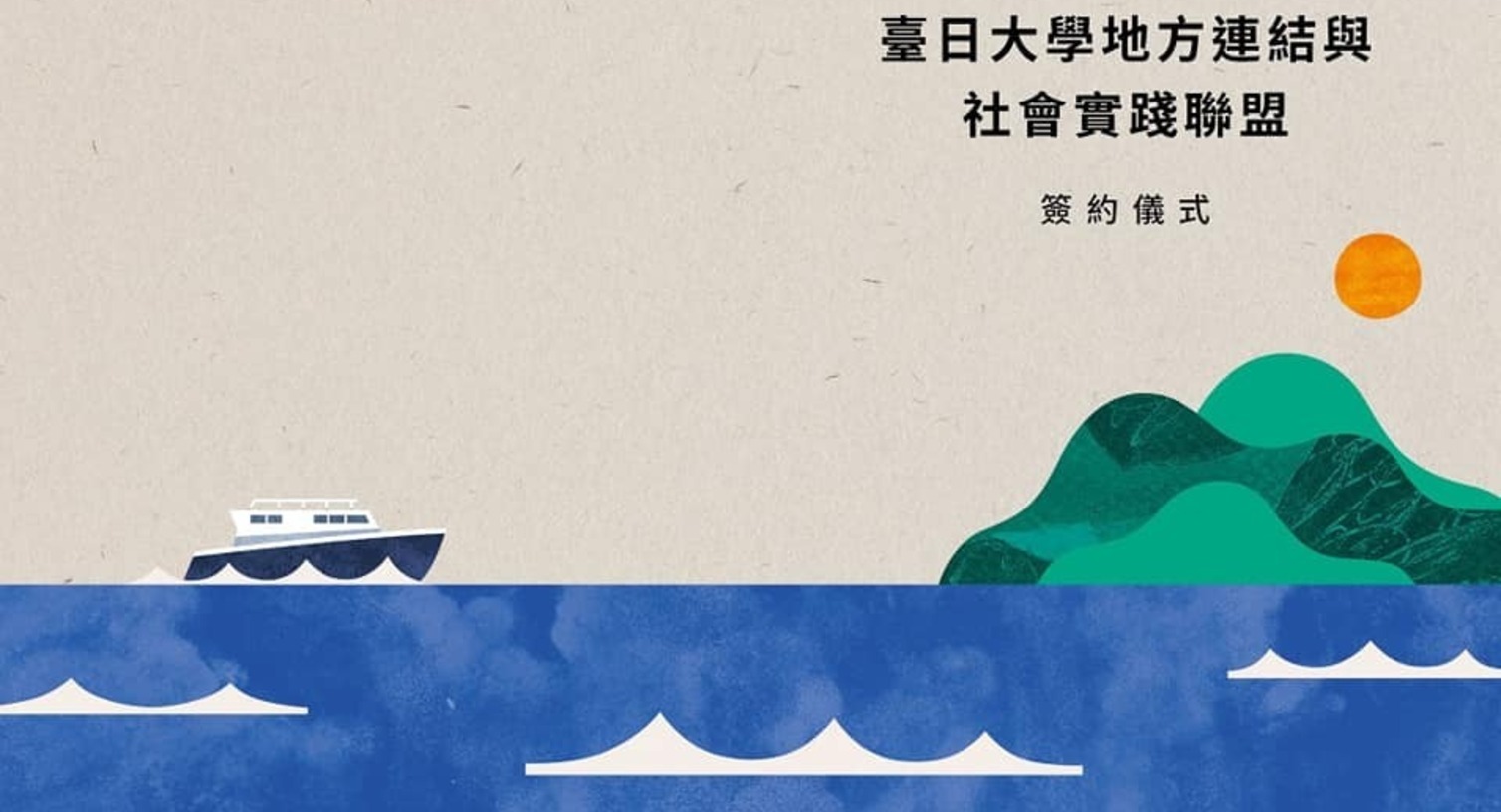Taiwan and Japan Universities form Alliance of Local Revitalization and Social Practice: Witnessing the Historical Moment with Transnational Signing Ceremony

With our historical connections and geopolitical interdependence, Taiwan and Japan have always maintained close exchanges in terms of economy, trade, academia, and culture. There seems to have always been a regional proximity between the two countries and have always been there for each other when disaster strikes. Taiwan and Japan both face social issues of aging population, low birth rate, dwindling population in non-urban areas, and disparity in urban and rural development, and both trying to mitigate problems with investment from university research. Universities in Taiwan and Japan have come to realize that the real solution lies in the ability to identity problems with local context, and in collaboration with local forces. The Ministry of Education and the Ministry of Science and Technology initiated respectively the University Social Responsibility project (USR project), and the Humanity Innovation and Social Practice (HISP project). The Ministry of Education USR project focuses on fostering talents in social practice, encouraging universities to combine theory and practice in curriculum planning, guide students to apply their professional knowledge and creativity to local practice, and become the younger generation that can develop the community in depth, contribute to the humanity, environment, society, economy, and create value for the local community. In turn, align university development with UN sustainable development goals, and enhance international connections and cooperation. The Ministry of Science and Technology HISP project helps universities form a cross-disciplinary academic research team, focusing on important social issues combined with citizen group practice, and discovering innovative reforms outside the traditional problem-solving pattern. During such practice, explore and accumulate local knowledge and theory, engage in academic dialogues with international experiences and build a diversified and novel academic paradigm combining theoretical study and social practice.
Taiwan-Japan University Alliance thus formed, creating an URS platform for international cooperation and interactionIn recent years, universities in Taiwan and Japan have responded to local issues by combining practices with teaching and research and have accumulated considerable outcome and resources. To further build on these results and take root in the society, forming an organized foundation is significant, thus the Taiwan-Japan University Alliance of Local Revitalization and Social Practice. Among which, the objectives of the Taiwan-Japan Alliance include:
- Facilitate substantial cooperation between Taiwan-Japan academic research and higher education.
- Reinforce international participation and exposure of universities in the field of social practice.
- Assist domestic universities in engaging in connecting internationally for the USR project.
The Taiwan-Japan Alliance office sees a combination of 6 Taiwan universities and 4 Japan universities, namely National Chi Nan University, National Cheng Kung University, National Kaohsiung University of Science and Technology, National Sun Yat-sen University, National Taiwan Ocean University, and Tunghai University in Taiwan, and Kōchi University, Chiba University, Ryukoku University, and Shinshu University in Japan, in the orders of the representative school of each delegation and the alphabetical order of the school names). Since 2019, there have been 11 regular organizing meetings to draft the establishment of the alliance, and the USR Center of the Ministry of Education have hosted 5 forums and workshops on curriculum and teaching, reaching a total of 400 participants offline and online. The Ministry of Science and Technology HISP project aims to achieve transnational academic research exchange, hosting a total of 5 forums and international conferences covering issues of social design, aging in place, indigenous peoples, solidarity economy, environmental sustainability, culture and art, regional revitalization policy research and analysis, and research methodology, accumulating over 600 participants engaging in academic discussions. The burning passion never faded despite the pandemic, exchanges continued amongst member universities, proposing various responsive creativity and solutions for critical social issues and development obstacles currently facing us. Taiwan-Japan Universities sign on to the Alliance, setting a new milestone for social practiceInto the third year of promoting and organizing the Taiwan-Japan Alliance, finally on November 16, the moment all universities have been waiting for, the Taiwan-Japan Alliance provisional office holds the Taiwan-Japan Alliance Transnational Signing Ceremony at the International Conference Room of GIS MOTC Convention Center. The signing ceremony sees participation by presidents of a dozen universities in Taiwan and Japan. With the travel restrictions brought about by the pandemic, universities in Japan are participating in the ceremony and signing the agreement online instead. Taiwan-Japan Alliance to inspire regional revitalization, and encourage international cooperation of qualityThe Taiwan-Japan Alliance is significant to the regional revitalization and social practice promoted in cooperation with Taiwan and Japan. Whereas universities in Taiwan and Japan used to establish cooperation individually on a one-to-one basis, the Taiwan-Japan Alliance acts as a platform for systematic and substantial exchange between multiple universities collectively. In the future, transnational cooperation will continue in academic research and talent fostering, negotiating alignment between member university systems, attracting more universities domestically and internationally to participate, and encouraging universities in Taiwan and Japan focused on local connections and social practice to engage in exchanges on academic research, talent fostering, and linkage to industries.